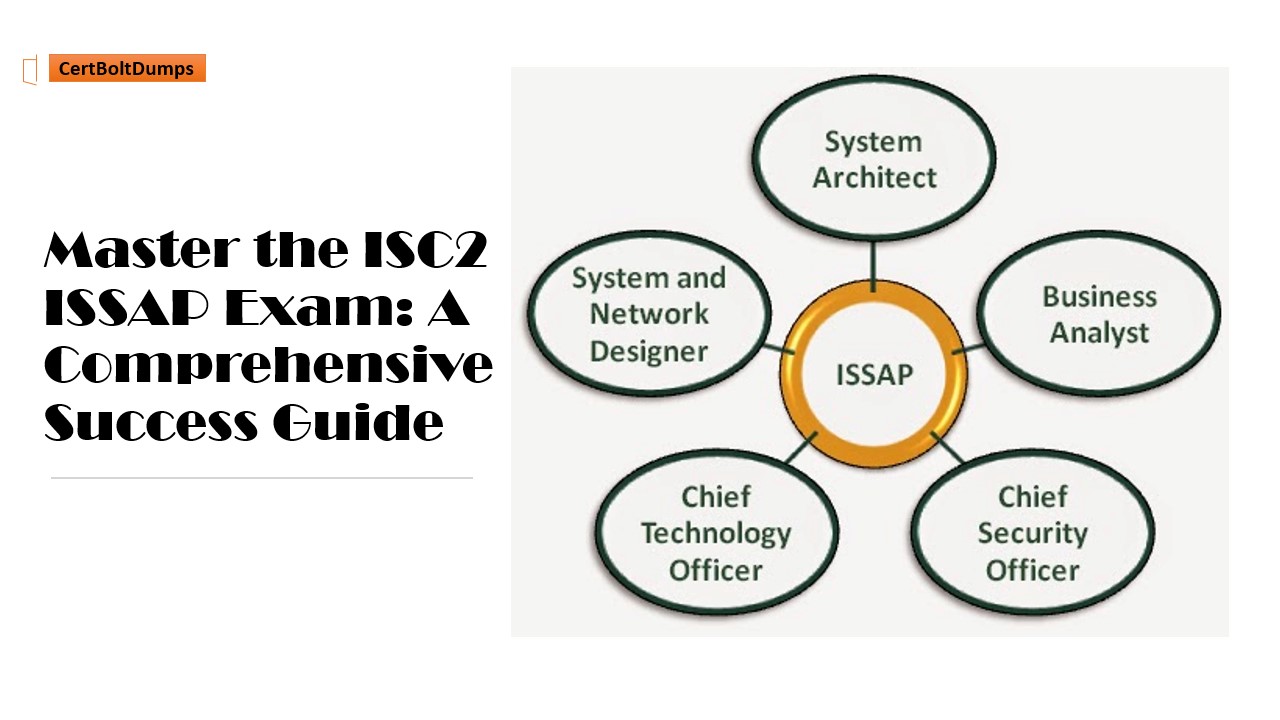The ISSAP exam is divided into six domains: Access Control Systems and Methodology, Cryptography, Security Architecture Analysis, Telecommunications and Network Security, Business Continuity and Disaster Recovery Planning, and Physical Security Considerations. Each domain covers a variety of topics related to the design and architecture of an information security system.
The exam is designed to test the candidate’s knowledge of the principles and techniques related to the design and architecture of an information security system, as well as their ability to apply those principles and techniques to the design and architecture of an information security system.
ISC2 ISSAP Exam Dumps:
The ISSAP exam is a two-hour exam consisting of multiple-choice questions. The exam is administered in a proctored environment and requires the candidate to demonstrate their knowledge and skills related to the design and architecture of an information security system. The exam is offered in both English and Spanish, and is available at a variety of test centers around the world.
The ISSAP Exam is designed to evaluate the candidate’s knowledge and skills related to the design and architecture of an information security system. The exam is designed to measure the candidate’s ability to apply security principles
Exam Structure and Format
The structure of an exam typically includes the type of questions, the number of questions, the time limit, and the scoring system. Questions can be multiple choice, true/false, short answer, essay, or a combination. The number of questions and time limit will vary depending on the type of exam and the course.
The format of an exam is the way in which the questions are presented. Questions can be presented in a linear format, where questions are presented in a specific order, or a non-linear format, where questions are presented in random order. The format can also be open-book, where students are allowed to use books or notes, or closed-book, where students are not allowed to use any outside materials.
The scoring system for an exam is usually based on a point system, where each question is worth a certain number of points. The total number of points is then used to calculate the student’s grade. Some exams may also include a bonus section, where students can earn extra points if they answer the questions correctly.
Exam Structure and Format are important for students to understand so they can prepare adequately and perform to the best of their ability. By understanding the structure and format
Preparing for the ISC2 ISSAP Exam
To prepare for the ISSAP exam, it is important to become familiar with the six domains of the exam: Access Control Systems and Methodology, Cryptography, Business Continuity and Disaster Recovery Planning, Physical Security, Telecommunications and Network Security, and Security Architecture Analysis. It is also important to understand the format of the exam, which consists of 150 multiple-choice questions.
The best way to prepare for the ISSAP exam is to take a comprehensive review course. These courses are designed to provide a comprehensive overview of the topics covered in the exam, as well as practice questions and test-taking strategies. It is also important to review the official ISC2 study guide, which provides an in-depth look at the topics covered in the exam.
In addition to taking a review course and studying the official study guide, it is important to practice with sample questions. This will help you become familiar with the types of questions that will be on the exam and give you an idea of how to approach them. It is also important to practice test-taking strategies, such as time management and eliminating incorrect answers.
Exam Content and Topics Covered
For example, a high school student taking a final exam in mathematics may be expected to demonstrate their knowledge of basic algebra, geometry, trigonometry, and calculus. Similarly, a college student taking a final exam in history may be expected to demonstrate their knowledge of world history, American history, and the history of their particular field of study.
In general, exams will cover the core concepts of the subject being tested. This may include topics such as definitions, facts, formulas, theories, principles, and processes. Depending on the type of exam, students may also be expected to demonstrate their understanding of the material by problems, writing essays, or completing other types of assignments.

In addition to the core content, exams may also include topics related to the specific course being tested. For example, a student taking a course in biology may be expected to demonstrate their knowledge of the scientific method, the structure and function of cells, and the principles of genetics.
Finally, exams may also include topics related to the application of the material. For example, a student taking a course in economics may be expected to demonstrate their understanding of economic principles by solving problems related to supply and demand or analyzing the effects of government
Benefits of Earning the ISC2 ISSAP Certification
First and foremost, the ISSAP certification provides a comprehensive understanding of the architecture and design of secure systems. It covers a wide range of topics, including risk management, security architecture, and secure system design. By earning the ISSAP certification, professionals can demonstrate their knowledge and expertise in these areas, which can be invaluable in the competitive information security field.
The ISSAP certification also provides professionals with the opportunity to advance their career. By earning the certification, they can demonstrate their commitment to the profession and their knowledge of the latest security technologies. This can help them stand out from other candidates when applying for jobs or promotions. Additionally, the ISSAP certification can help professionals stay up-to-date on the latest security trends and technologies, which can be invaluable in a constantly evolving field.
Finally, the ISSAP certification can help professionals build a network of like-minded professionals. By earning the certification, professionals can join the ISC2 ISSAP community, which is a global network of certified professionals. This can provide professionals with the opportunity to connect with other professionals in the field and share knowledge and experiences.
